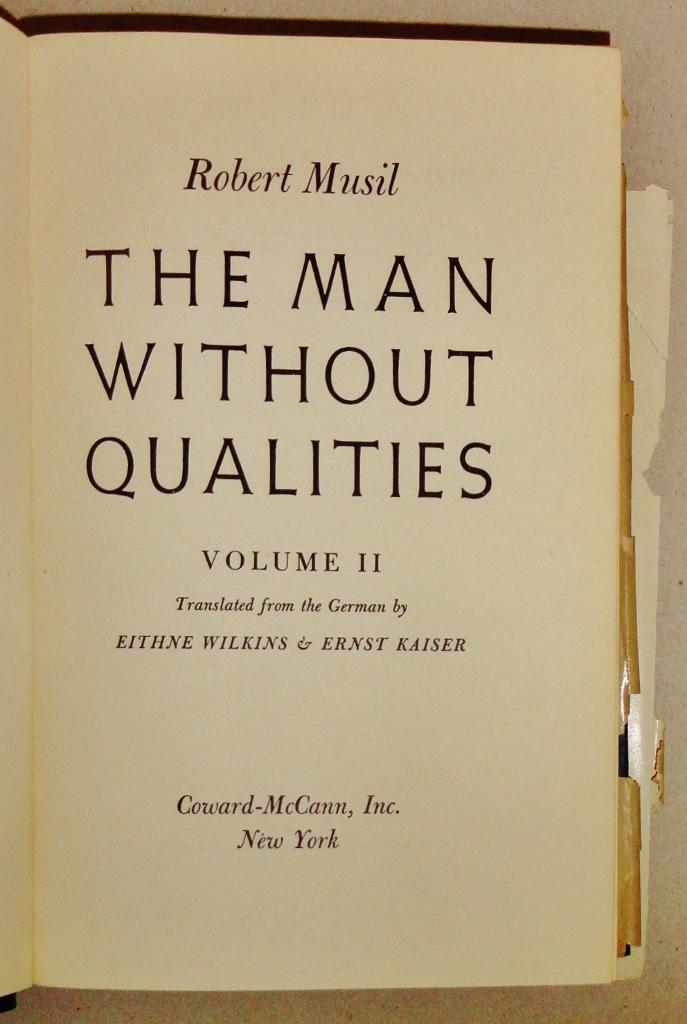
Intelligence was the main criterion Musil applied to his time and to himself applied intelligence is the un-Austrian activity his hero practices. It also contains aphorisms about “God and the world.” The intermediate region, however, that of life as a social phenomenon, is treated with less precision and gusto, and moreover, is so encumbered with erotic anecdotes and philosophical reflections as almost to be lost to view.

The novel contains an ample catalogue of sexual experiences from the farcical to the pathological. In Mann ohne Eigenschaften, Musil strove, in Hermann Broch’s words, to depict man “in the full scale of his possibilities of experience, starting with the physical and emotional and extending up to the moral and metaphysical.” Being a novelist, and an Austrian novelist, however, he concentrated on the extreme ends of the scale. He lived in Vienna until 1938, when the arrival of the Nazis forced him, the genteel Gentile, to move to Switzerland the year before he had given a public talk about the Nazis called “On Stupidity.” Unlike Rilke, he was not broken by it he did not experience Old Austria as a trauma to be suppressed for an entire lifetime. Like Rainer Maria Rilke, he was educated in an Austrian military academy. Robert Edler (Knight) von Musil was born in Klagenfurt, Austria, in November 1880, and died in April 1942 in Geneva, Switzerland. As a memory-more delicate still and even less exportable-it lived on, until 1938: in much of Schnitzler, some of the earlier Hermann Broch, Joseph Roth’s Radetzkymarsch, Hugo von Hofmannsthal’s comedy Der Schwierige (“The Man Who Was Difficult”), and most certainly in the later works of the satirist Karl Kraus. Nor did this literature perish with the end of the Hapsburg monarchy. Yet this literature still preserves the elaborate, detailed, microscopically correct image of an imperial civilization that it crumbles to pieces in the hands of the translator is but a sign of its original fineness. Those who now try to revive this joke in translations find a queer obscurity instead of the scintillating wit they had been led to expect. The style of life in the last years of Franz Joseph’s reign produced a literature so enamored of nuances, so absorbed in the spectacle of its own brilliant decline, that it found its end in a kind of private joke. It is very much an Austrian, and not a German, novel. It is one of the paradoxes of the book that it nevertheless attempts such definition. Ulrich, the man without “qualities,” has qualities galore. Its very title is misleading in translation. The English translation, one-fifth the length of the original, simply fails to make sense. And not only because of its language-I doubt even if German readers outside the boundaries of Old Austria are able to follow all the ironies and innuendoes of its style. Robert Musil’s Der Mann ohne Eigenschaften is a great and tragic book.

Translated by Eithne Wilkins and George Kaiser.


 0 kommentar(er)
0 kommentar(er)
